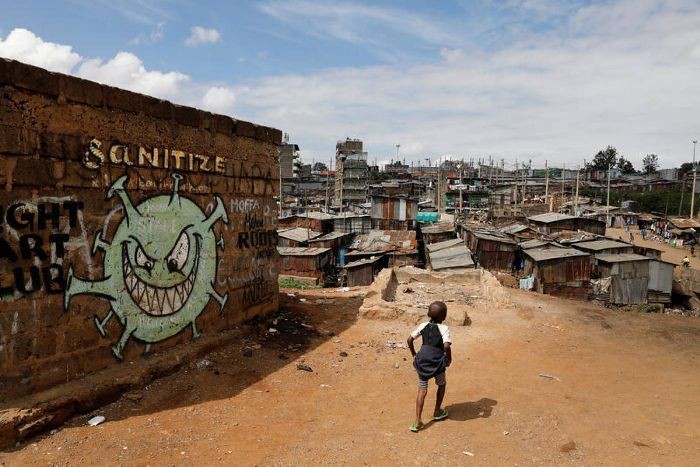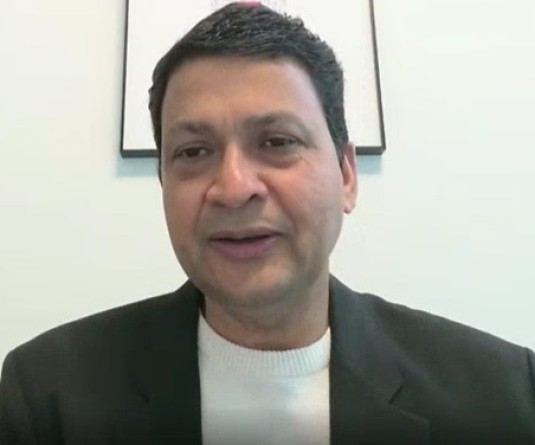A boy walks in front of a graffiti promoting the fight against the coronavirus disease in the Mathare slums of Nairobi, Kenya, May 22, 2020. REUTERS/Baz Ratner

The pandemic has highlighted the need to address global inequality in education, pay and health care access, philanthropist Bill Gates said.
NEW YORK, September 16 (Thomson Reuters Foundation) - The coronavirus pandemic has wiped out progress on lofty goals such as ending world poverty and hunger in the next decade, but the economic damage of COVID-19 shows how badly such global development is needed, philanthropist Bill Gates said.
Across the world, the virus has deepened social and economic inequality in areas like education, pay and health care access, Gates said in remarks accompanying Monday's release of a global development report by the Bill & Melinda Gates Foundation.
The report outlines ways in which COVID-19 has wreaked economic damage and derailed progress on many of the global development goals adopted by the United Nations five years ago.
"The COVID-19 pandemic not only stopped progress, it kicked it backward," said Gates, who co-founded Microsoft Corp, in a conference call with reporters. He and his wife Melinda set up the philanthropic foundation in 2000.
U.N. members unanimously passed 17 Sustainable Development Goals, known as SDGs, in 2015, that read like a blueprint of ambitious tasks from ending hunger and gender inequality to expanding access to education and health care.
The goals had a deadline of 2030.
"The SDGs represent the values that we have for humanity as a whole," Gates said.
"The importance of the goals if anything is reinforced by the pandemic," he said. "After all, the pandemic has in almost every dimension made inequity worse."
The number of people living in extreme poverty had been dropping for two decades, but the coronavirus crisis has pushed nearly 37 million more into the category, the report said.
It said the pandemic has widened inequality between men and women in terms of unpaid work, with women handling more child care and housework than ever before.
Experts have been warning since the virus emerged that the global goals would be threatened as economies shrink, public financing dries up and international cooperation wanes.
Nearly 90% of the world economy has been under some form of lockdown, disrupting supply chains, depressing consumer demand and putting millions out of work, according to a U.N. World Economic Situation and Prospects report issued in May.
Earlier critical assessments of the global goals had predicted that conflict or climate change would slow progress, but the pandemic marks the biggest obstacle yet, specialists have said.
The May U.N. report predicted COVID-19 would slash global economic output by $8.5 trillion over the next two years and said the global economic contraction of 3.2% projected for this year was the sharpest since the Great Depression in the 1930s.






